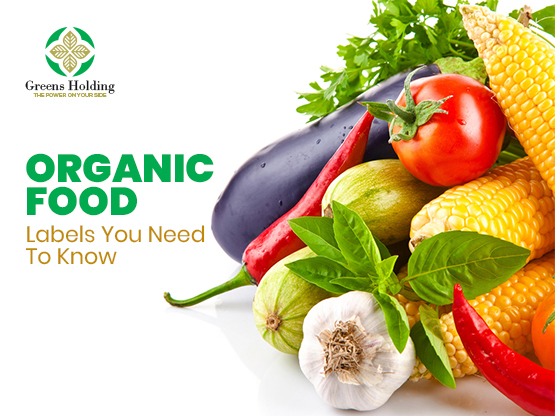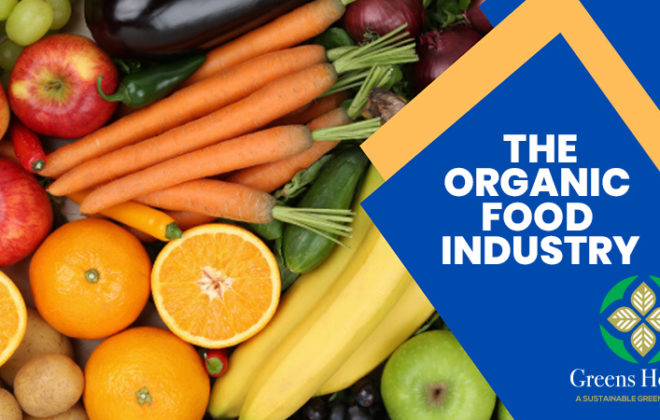Organic Food Labels You Need To Know
During the past few years, organic farming has evolved as a food culture as more people are conforming to these practices and creating awareness about it. Additionally, as a result of conventional farming techniques and artificial farming, many faced major health issues and various health problems grew to become common amongst the masses, a product of conventional chemical-based farming. It became imperative to find a modern healthy alternative i.e. naturally derived food without chemical intervention and artificial ingredients, to encounter the prevailing health problems. That’s when organic farming came into play.
When you shop for fruits and vegetables, you often come across terms like organic, no artificial ingredients, MSG-free, organic feed, certified organic and organic farming. To understand these labels, it is important to first understand what means what and which terms you can completely rely on.
In this blog, we have discussed the above-mentioned terms to clear things up for you. Let’s begin:
Organic Food
The term “organic” means naturally-derived and it refers to the agricultural products that are naturally grown and processed without any interference of chemicals and synthetic or artificial ingredients. Its standards vary from country to country and propagate practices that recycle resources, develop sustainable ecosystems, help conserve biodiversity, and promote humane animal treatment. Food obtained through this agricultural production system rejects the use of artificial fertilizers and pesticides, genetically modified organisms (GMOs), growth hormones, and livestock feed additives. Organic foods contain more nutrients and antioxidants than conventional farming non-organic food.
Organic Farming
Organic farming is a specific kind of agricultural system which originated in the early 20th century. This agricultural system uses natural farming techniques and relies on biodiversity to produce organic food and fiber. It prohibits farmers from using synthetic pesticides, artificial fertilizers, genetically modified organisms, antibiotics, and growth hormones like steroids. All farming produces, grains, meat, dairy, eggs, and fibers are produced organically without any chemical intervention.
MSG Free
Monosodium glutamate (MSG) is a food additive used for enhancing food flavor. Generally, it is used as a flavor enhancer in Asian cuisines, soups, fast foods, canned, and processed foods. Researchers found that it is neurotoxin thus, leading to the development of cancer. There’s been an ongoing debate about its use as it is banned in many parts of the world. Some say it is safe, while the majority believes it to be hazardous. Thus, it’s usage remains controversial. Foods that say ‘MSG free’ means that they are safe and organic.
Organic Feed
We all have heard of how plants, livestock, and poultry are fed and grown in conventional farms, how they become fully grown within weeks instead of months. Their feeds contain hormone regulators (both through diet and injections) and artificial ingredients which stimulate their growth multiple times than organic feed.
Organic feed is a feed that is certified to be naturally obtained and additive-free ( i.e. synthetic pesticides, fertilizers, growth hormones, antibiotics, and other artificial ingredients). Plants, livestock, and poultry are fed with pure organic feeds like organic fertilizers, organic certified seeds, pastures, grains, and other respective foods.
Certified Organic
Labels that read “Certified organic” indicate that agricultural items have been grown and farmed by uniform principles, and confirmed by associations that have been certified by the USDA or EU. But, it is not easy to claim your products organic, all items labeled and sold as “organic” must be certified. To get accreditation, farmers present an organic system plan and should get their farming facilities inspected or examined. Examiners guarantee that every organic practice is occurring as per standards, from cleaning to pest control techniques, transportation, and handling, and that record-keeping is being followed. Certified organic products require the exclusion of any chemical or synthetic ingredient.
Now, you know these labels. Next time when you go grocery shopping, make sure you read the labels right and buy pure organic eggs, organic vegetables and fruits, and organic meat.
Related Posts
Leave a Reply Cancel reply
Categories
- GreensProject (24)




